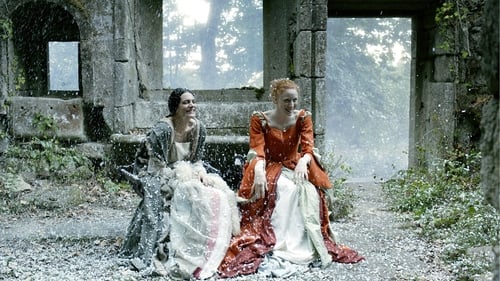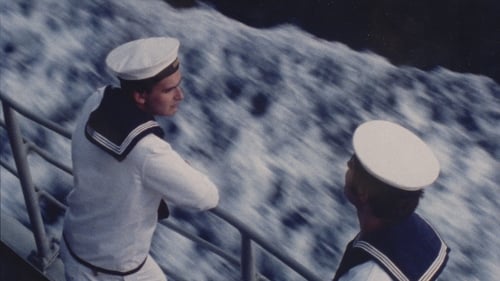
Director
Al atardecer, las canciones de amor resuenan en los jardines públicos del Palácio do Catete, la antigua residencia oficial del presidente de Brasil. Una orquesta improvisada acompaña a un grupo de ancianos entre 70 y 100 años que cantan para purificar su alma y, juntos, celebran la joya de estar vivos a ritmo de serenata brasileña.

Director
A European teenager ran away from home to marry a Daesh fighter. She became a bride of the Jihad. Three years later, her life has dramatically changed. She is living in an Iraqi prison camp. Now she has two children to take care of and is pregnant again. She is a 20-year-old widow and soon will be put on trial in the Iraqi courts. What have the experiences of war and brainwashing done to her?

Pintor na Ponte
En algún momento del Medioevo tardío, el noble Herren von Ketten (Marcello Urgeghe), en pleno conflicto con el Episcopado de Trento, busca matrimonio en un país lejano, Portugal. Su esposa será una mujer portuguesa (Clara Riedenstein) que se instalará en el castillo de los von Ketten al norte de Italia. Recluida allí, con su esposo en la guerra, quedará embarazada de su primer hijo. Su vida transcurrirá entre criados, lecturas, juegos con un cachorro de lobo y el aprendizaje de algunos oficios manuales. Será un universo pautado por el ritmo masculino y en el que las mujeres deben parir, criar y esperar.

Screenplay
Alentejo, Portugal, 1950. In a desolate region, where the wind seems to speak, where misery and hunger reign over poorest, a desperate man takes his revenge on those who caused his ruin during the darkest night, unable to get honestly the bread needed to feed his family in the daylight.

Producer
Alentejo, Portugal, 1950. In a desolate region, where the wind seems to speak, where misery and hunger reign over poorest, a desperate man takes his revenge on those who caused his ruin during the darkest night, unable to get honestly the bread needed to feed his family in the daylight.

Director
Alentejo, Portugal, 1950. In a desolate region, where the wind seems to speak, where misery and hunger reign over poorest, a desperate man takes his revenge on those who caused his ruin during the darkest night, unable to get honestly the bread needed to feed his family in the daylight.

Producer
Present, past and future merge in the wagons of a train that crosses Eastern Europe in the XXI century: Poland, Russia, Ukraine. The slogan of the post-war "Never Again" sounds now like a fairy tale. Everything is happening again. Everywhere.

Director
Present, past and future merge in the wagons of a train that crosses Eastern Europe in the XXI century: Poland, Russia, Ukraine. The slogan of the post-war "Never Again" sounds now like a fairy tale. Everything is happening again. Everywhere.

Writer
Present, past and future merge in the wagons of a train that crosses Eastern Europe in the XXI century: Poland, Russia, Ukraine. The slogan of the post-war "Never Again" sounds now like a fairy tale. Everything is happening again. Everywhere.

Director
This last testimony of Robert Kramer (1939-1999) is a moving documentary with the independent American film director, in which he speaks of his political activism, his way of filmmaking, his relationship with Portugal and the revolutionary movements.

Director
Following international recognition of Fado, Portugal recently submitted to UNESCO the polyphonic songs of the Alentejo, known as Cante Alentejano, or just Cante, as an Intangible Cultural Heritage of Humanity. This film will be a journey into the hot Alentejo countryside (Southern region of Portugal) discovering Cante music and the life of its performers. Not many people outside Portugal know about these a capella polyphonic choirs, typically formed by 20 to 30 male agricultural workers or miners, that seem to express the deep voice of the Earth.

Editor
Maria, a Ukrainian doctor, comes to Portugal to spend a year with Greco, her husband who is also a doctor. Upon arrival at Faro airport she is the only person from Kiev approached by agents of Immigration and Customs that lead her to a room of interrogation, without any explanations. All this occurs because the authorities suspect that something illegal should be behind her trip, since she is from Eastern Europe and her husband is Senegalese.

Producer
Maria, a Ukrainian doctor, comes to Portugal to spend a year with Greco, her husband who is also a doctor. Upon arrival at Faro airport she is the only person from Kiev approached by agents of Immigration and Customs that lead her to a room of interrogation, without any explanations. All this occurs because the authorities suspect that something illegal should be behind her trip, since she is from Eastern Europe and her husband is Senegalese.

Writer
Maria, a Ukrainian doctor, comes to Portugal to spend a year with Greco, her husband who is also a doctor. Upon arrival at Faro airport she is the only person from Kiev approached by agents of Immigration and Customs that lead her to a room of interrogation, without any explanations. All this occurs because the authorities suspect that something illegal should be behind her trip, since she is from Eastern Europe and her husband is Senegalese.

Director
Maria, a Ukrainian doctor, comes to Portugal to spend a year with Greco, her husband who is also a doctor. Upon arrival at Faro airport she is the only person from Kiev approached by agents of Immigration and Customs that lead her to a room of interrogation, without any explanations. All this occurs because the authorities suspect that something illegal should be behind her trip, since she is from Eastern Europe and her husband is Senegalese.

Director
The City of the Dead, in Cairo, is the biggest necropolis in the world. One million inhabitants live there: in the tomb houses or in the buildings that have grown up around the tombs. We can find bakeries, coffee shops, markets, school for the children, mechanics for the cars. Everything inside the cemetery. The City of the Dead is gigantic but it feels like a small village. Mothers want to marry their daughters, boys keep chasing the girls. These things never change. It doesn't matter if you live in a big city, in a village or in a cemetery.

Director
Every week there are several marriages on The City of Dead. The parties are amazing that last several days - always in the graveyard. They start in a morning with the ceremony that makes the mattress of the grooms and displays the trousseau. A few days later the process culminates in a raucous party (with professional musicians or DJs), often abundantly filled with alcohol, with high consumption of hashish ... and bills flying.

Producer
A man has to sell the home he has spent such happy times in. His daughters have grown up and left. Reluctantly, he shows the house for some buyers: a young couple with a kid. When they arrive, in love and so happy, the house owner sees a reflection of himself years before. This unexpected glimpse of his past makes handing over somehow easier to bear…

Producer
A hundred letters written by Portuguese women during the Salazar dictatorship were found by chance in a second-hand bookshop. By confronting today the women who wrote these letters with the ghosts of the past, and revealing important archive material, Letters to a Dictatorship takes us on an in-depth journey through the obscurantism that dominated Portugal for more than 50 years.

Producer
Lisboners (people of Lisbon) celebrates the ancient notion of citizenship, the right to the city in the making, in each migrant’s daily life, living and working. It is set in Lisbon but it happens in London, New York, Paris, Rome… anywhere. The Lisboners are people from Brazil, Guiné-Bissau, Nigeria, China, Pakistan, India and Bangladesh, Ukraine, Moldavia, Russia, and Estonia.

Director
Lisboners (people of Lisbon) celebrates the ancient notion of citizenship, the right to the city in the making, in each migrant’s daily life, living and working. It is set in Lisbon but it happens in London, New York, Paris, Rome… anywhere. The Lisboners are people from Brazil, Guiné-Bissau, Nigeria, China, Pakistan, India and Bangladesh, Ukraine, Moldavia, Russia, and Estonia.

Director
A poignant personal story. Do we want to know it? Sérgio tries to understand the troubled past of his mother, Fleurette, 79 years old. Notwithstanding her resistance to his questions, little by little, throughout the film she reveals almost another life where love is closely related to politics. From occupied France and Nazi Germany to the Brazilian dictatorship and the Portuguese revolution.bright and powerful speech magnetizes the audience.

Writer
The Portuguese Revolution (1974-75) seen through the eyes of some of the most important photographers and filmmakers that witnessed the event. Their dreams and expectations and what came out of the revolution. With outstanding historical footage.

Director
The Portuguese Revolution (1974-75) seen through the eyes of some of the most important photographers and filmmakers that witnessed the event. Their dreams and expectations and what came out of the revolution. With outstanding historical footage.

Writer
A musical fable inspired by Plato’s Symposium. In a shameless speech, Alcibiades, a prominent young Athenian aristocrat, propounds his strategies to seduce the old philosopher, Socrates. He believes that the wisdom and knowledge he imagines Socrates has, can be transmitted via physical contact.

Director
A musical fable inspired by Plato’s Symposium. In a shameless speech, Alcibiades, a prominent young Athenian aristocrat, propounds his strategies to seduce the old philosopher, Socrates. He believes that the wisdom and knowledge he imagines Socrates has, can be transmitted via physical contact.

Assistant Director
Freely based on Gide ('Paludes') and Hawthorne ('Wakefield'), this is a film about a writer who never wrote anything and who blows at nightfall the breath of frost. The poem by Carlos Queiroz to which the above sentences belong is not cited in 'O som da Terra a Tremer', but the atmosphere is that, between written letters never received. Fiction within fiction, stories within stories, like those Chinese boxes in which there is always one inside another. Or the two margins of the same river, always being lateral.


























